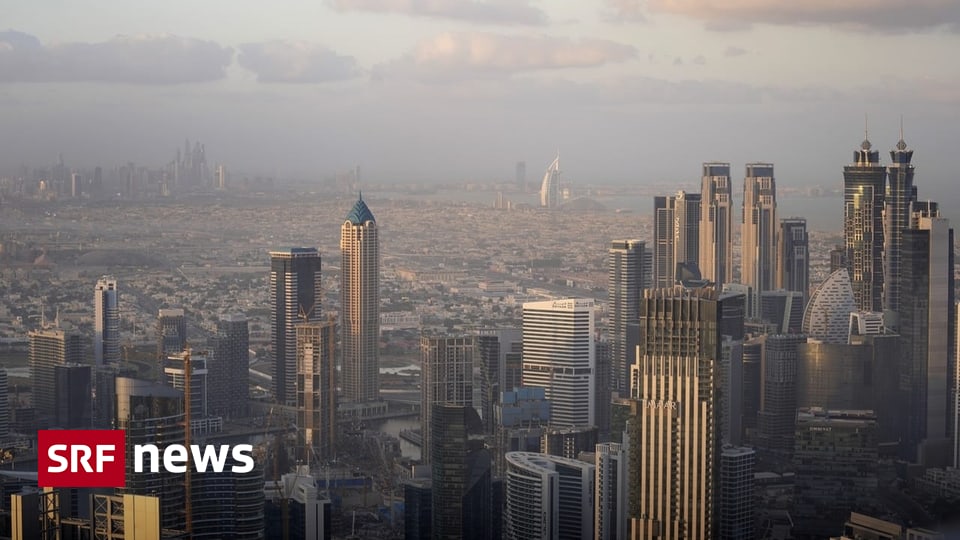
The Arab oil princes’ interest in Africa began on the Red Sea coast, but the radius of their involvement now spans the entire African continent and various economic sectors. Emirates also intervenes in war zones, for example in Sudan.
Emirati television broadcasts live footage of the inauguration of a new field hospital in Abechi, Chad, on the border with Sudan. Twenty million dollars worth of medical infrastructure from Abu Dhabi. It is the latest aid from the Gulf in what is now the world’s biggest refugee crisis.
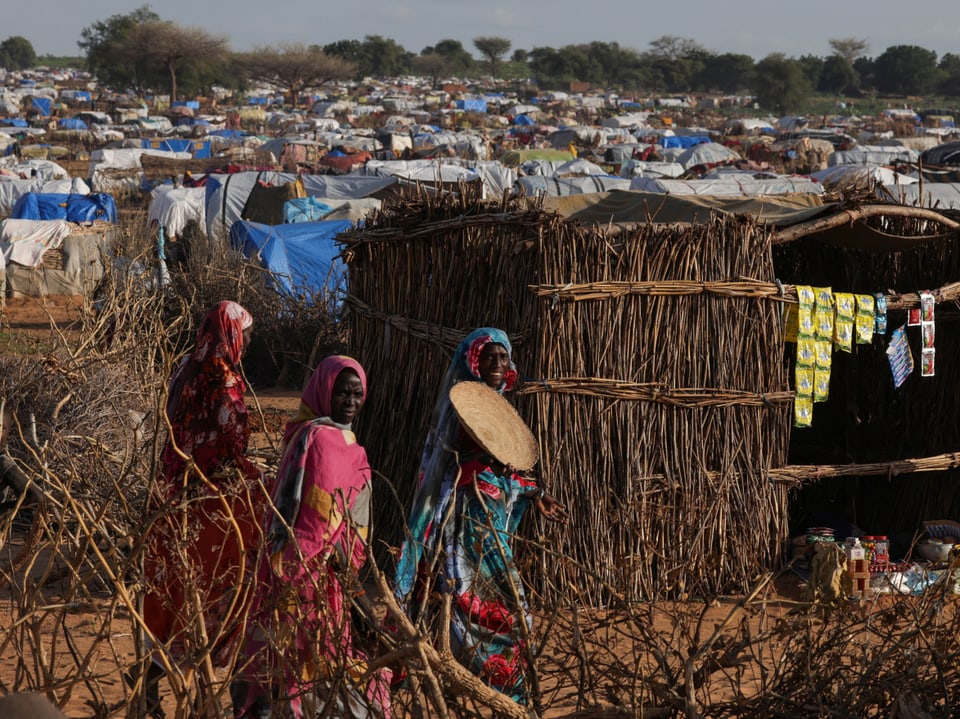
Purana:
Sudanese women fleeing the conflict in Darfur live in temporary shelters in Adre, Chad. (Image August 2023)
REUTERS/Zohra Bensemra
The humanitarian commitment of the United Arab Emirates (UAE) to the victims of the power struggle in Sudan is impressive. But the allegation persists: Gulf princes not only provide humanitarian aid, but also supply weapons to one of two warlords in Sudan. In other words: they provoke a murderous conflict, the consequences of which they try to mitigate simultaneously with their field hospitals.
The Muslim Brotherhood is a common enemy
Even its oldest ally, the United States, has recently been pointing fingers at them: US ambassador Linda Thomas-Greenfield openly criticized the Emirates at the UN Security Council in late April over foreign arms supplies to Sudan. A UN report has also concluded that the alleged supply of arms to Sudan is credible.
The recipient of military aid from Abu Dhabi is Mohammed Hamdan Daghlo, a militant leader known as Hemeti, known as the Quick Support Forces. The government in Abu Dhabi strongly denies any direct involvement in the war. People in Sudan are for peace.
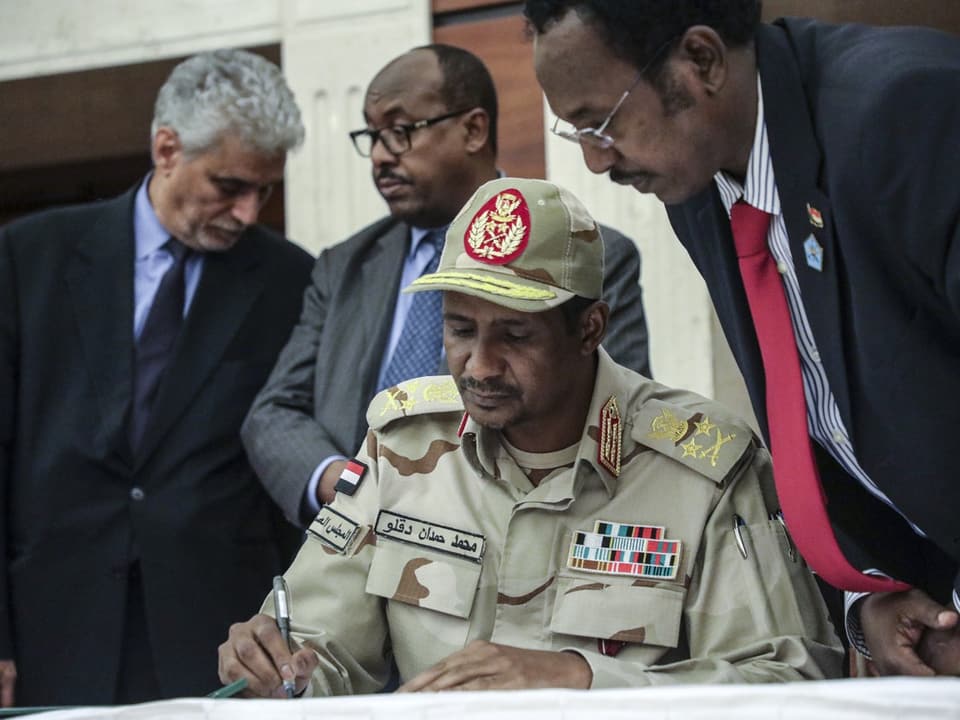
Purana:
Is Sudanese warlord getting weapons from Hemeti Gulf? (Middle, image taken in July 2019.)
Keystone/AP Photo/Mahmoud Hjaj
There is no doubt that the oil monarchy has a long and close relationship with Hemeti – a Sudanese warlord accused of the most serious war crimes, including systematic massacres against starving civilians and ethnic minorities.
The former camel trader is believed to have long run his extensive gold business through Dubai. The authoritarian leadership of the UAE also shares with Hemeti an antipathy towards Islamists, more precisely the Muslim Brotherhood.
The subversive power these Islamists have created in some Muslim communities alarmed the autocrats in Abu Dhabi years ago. In this “war on terror” Hemety presented himself as an ally. He mobilized his Sudanese mercenaries, who fought in Libya and Yemen for the interests and on behalf of the UAE. So initially it was about both commercial and military service.
“Sparta from the Gulf”
In response to the mass protests of the “Arab Spring”, the UAE intervened in various regional conflicts from Bahrain to Egypt. The phrase “Sparta on the Gulf” made the rounds: like the ancient city-state, the Emirates, with their billions in oil, pursued an aggressive foreign policy disproportionate to their small size.
Where others have allowed chaos and instability, Emirates has embraced historical responsibility and encouraged moderate forces.
The UAE’s top political expert, Abdulkhalek Abdullah, insists that the “pursuit of stability” is what guides the UAE in its foreign policy. He is considered close to the government. “Where others have allowed chaos and instability, Emirates has taken historic responsibility and encouraged moderate forces,” he said during our last visit to Dubai.
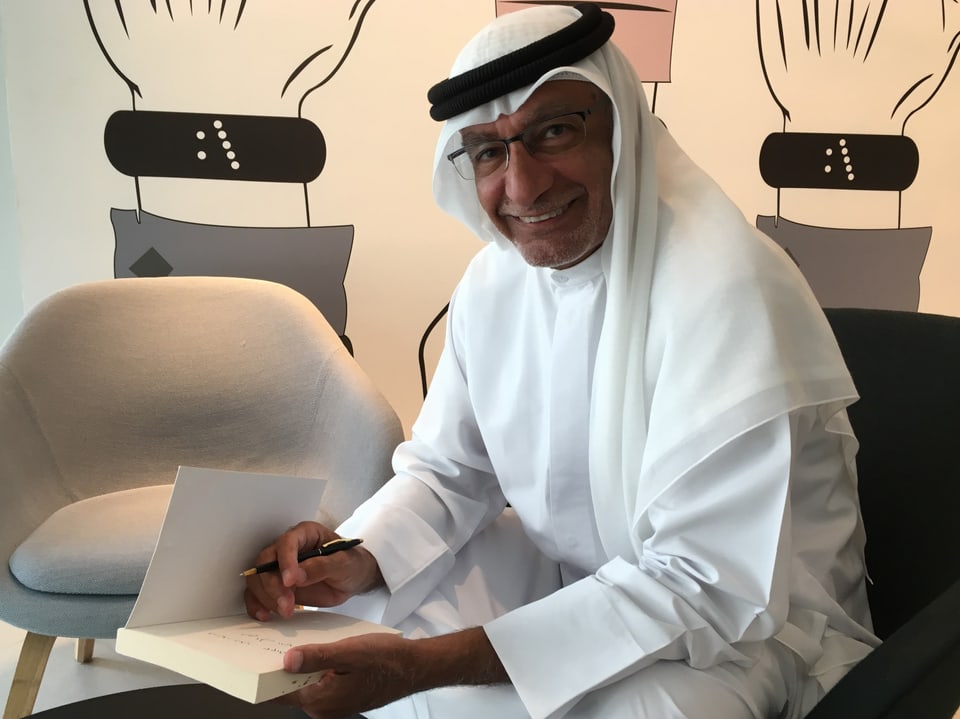
Purana:
Abdulkaleq Abdullah, a former political science professor, was also an adviser to the current president, Muhammad bin Zayed. Abdullah hailed the UAE as a “new leading power” in the region.
SRF
In Sudan, however, many see the emirates as sowers of chaos. The Yemen war has already shown how the UAE combines strategic commitment with commercial interests. Abu Dhabi gained control of key ports on the Arab side of the Red Sea with the help of allied Yemeni militias. From there it is a short drive to Africa.
Gulf princes began building port infrastructure along the African Red Sea coast and the so-called Horn of Africa from Eritrea to Djibouti to Somaliland. They are now investing in port facilities on the west coast of Africa, in Angola and Senegal.
For Eleonora Artemagni, this shows that the entire African continent is now the center of Emirati expansion. He researches Emirati foreign policy at the Italian Institute for International Political Studies in Milan.
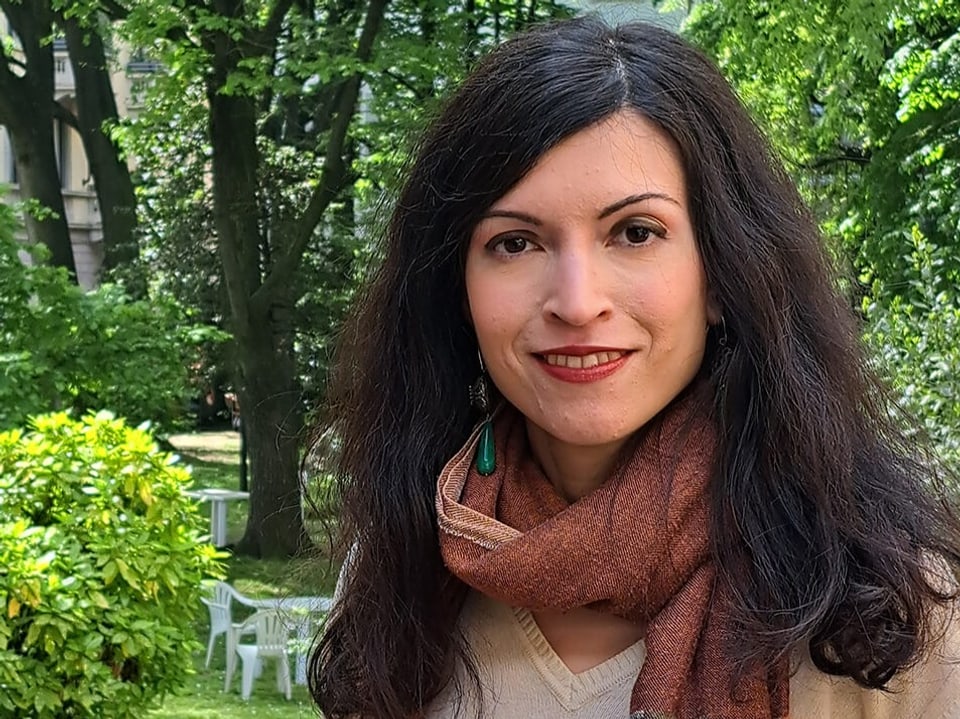
Purana:
Eleonora Artemagni is an expert on Yemen, Gulf monarchies and Arab armed forces.
Italian Institute for International Political Studies (ISPI)
Shipping logistics is one of many Emirati activities on the African continent. The UAE invests in mining and gold mines and buys raw materials related to the energy transition: copper, cobalt, lithium, nickel. Their interest in the mining business stretches from Zambia to Angola to Tanzania. They also operate wind farms in South Africa and solar systems in Mauritania.
Exploitation of strategic raw materials
Artemagni sees energy transition as one of the drivers of expansion. The oil princes of the Gulf are trying to secure themselves for a future where natural resources will not flow from their own soil.
Investors from arid desert states are also concerned about securing food supplies via Africa. Nevertheless, the traditional oil business is important, for example in Mozambique. Emirates is also active in telecommunications, in 12 different African countries.
Emirates now overtakes China in billions in direct investment in Africa. The Milan-based golf researcher believes his commitment to Africa is long-term.
Dubai is the “Commercial Hub” of Africa.
While the Emirates invests heavily in the exploitation of the continent’s resources, Dubai attracts the financial transactions of the African elite: the trading center with its glass palaces on the Persian Gulf is now considered the most important “business hub” in Africa. .
Emirates wants to keep their independence policy.
The extremely wealthy Gulf monarchy benefits from its dynamism in international relations. It has always operated under the U.S. security umbrella, but is increasingly barred from freer relations with China and Russia.
“Emirates wants to keep its policy of independence,” says Eleonora Artemagni. Western sanctions affect the rulers of Abu Dhabi and Dubai on a case-by-case basis. Sanctions against Russia are ineffective and make business more complicated – a leading Dubai business representative was recently quoted in the Financial Times.
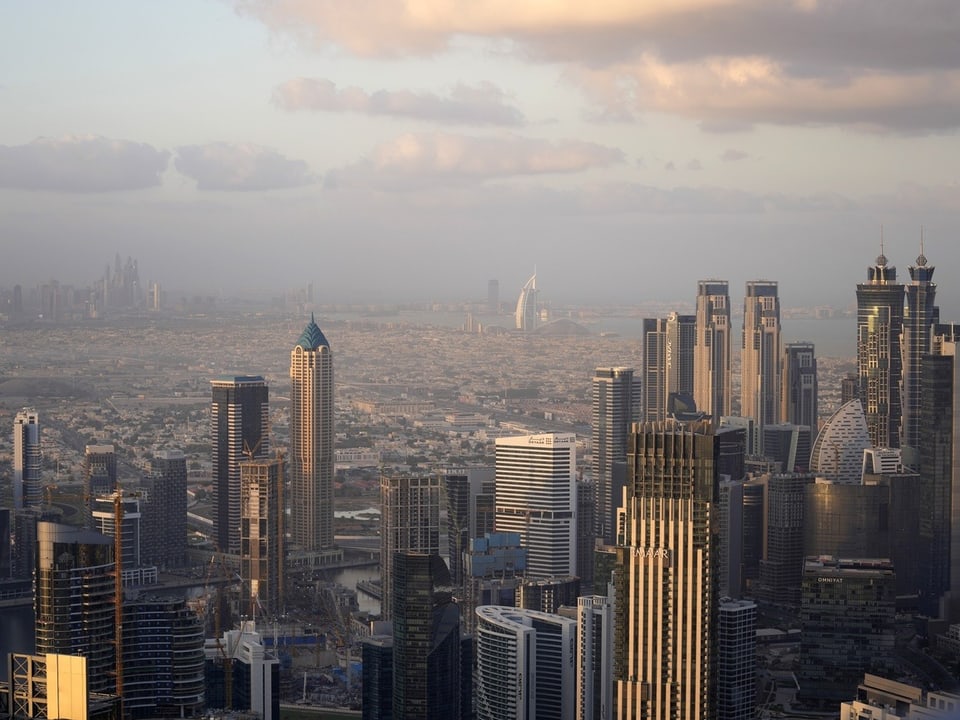
Purana:
Dubai skyline. (Picture taken in November 2023)
(Keystone/AP Photo/Kamran Gabriel)
So far the strategy is working: reports of arms deliveries to Sudan, the fact that the Emirates are violating Western sanctions over the war in Ukraine — both have angered the West, but not permanently strained relations.
Competition for the powerful microstate arises just on its doorstep, where the largest Gulf monarchy is also developing an appetite for Africa’s vast wealth and trying to free itself from the West: Saudi Arabia. Emirates now takes it easy. They are years ahead of their big brother state in African business.

“Wannabe pop culture fanatic. Zombie advocate. Entrepreneur. Internet evangelist. Alcohol fanatic. Typical travel buff.”





More Stories
Choosing the Right Quality Management Software for Your Industry
If guests bring items: Can shower gel be packed from the hotel?
This diet can prevent death from dementia